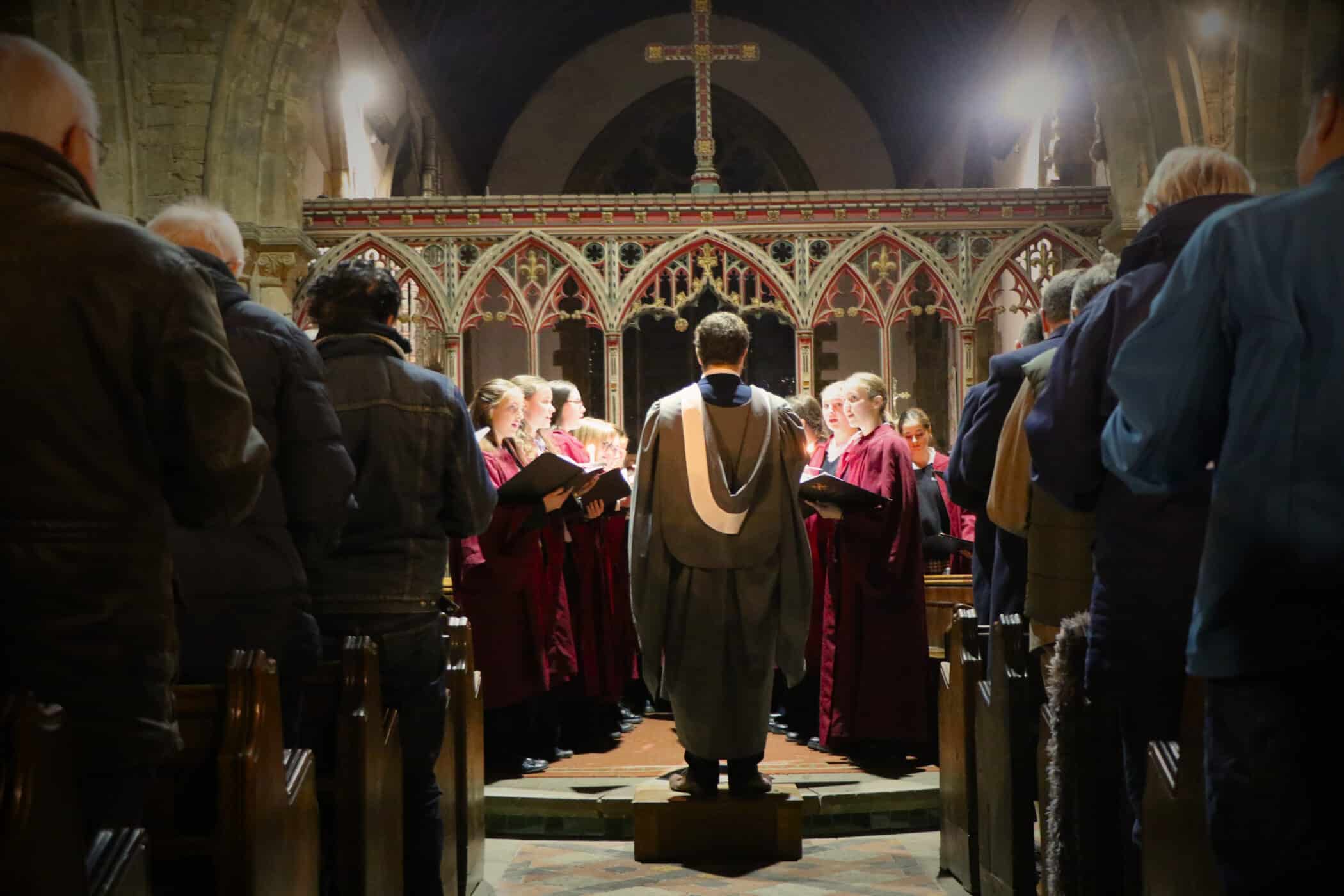For an event so wrapped up in tradition, it might surprise you to know that the first Carol Service in Bloxham School history was not held until December 1943, when the organist GR Watts organised a service of four lessons and familiar carols for choir and congregation. The service of Nine Lessons and Carols at King’s College, Cambridge, which serves as the model for all school and college carol services, only dates from 1918. The first such service, introduced by EW Benson when Bishop of Truro, happened in 1880 and was an attempt to take carols out of the alehouse and into the church. Before the nineteenth century, the church disapproved of carols, with only one Christmas hymn, While Shepherds Watched Their Flocks, permitted to be sung in church. For such a comparatively young institution, the Bloxham School Carol service has its fair share of traditions, but there has also been a surprising number of changes to its format and nature over the intervening 81 years.
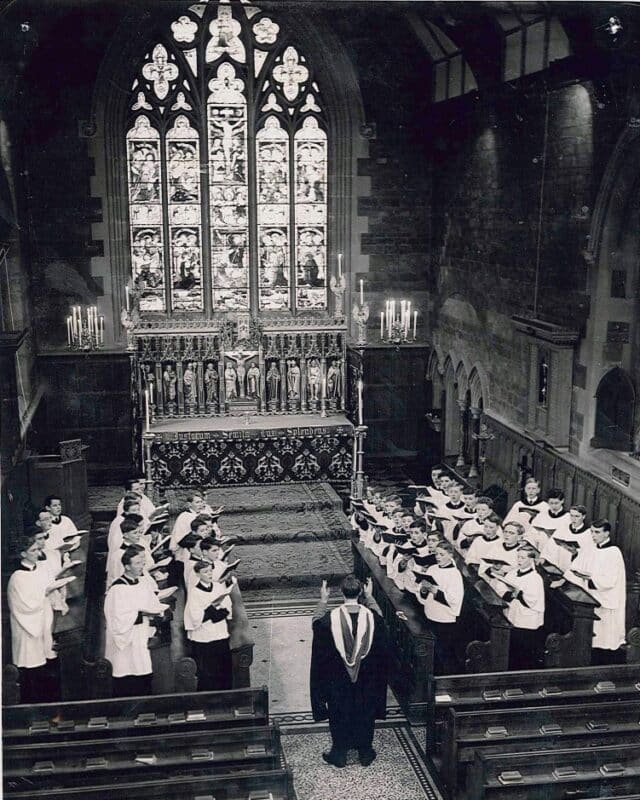
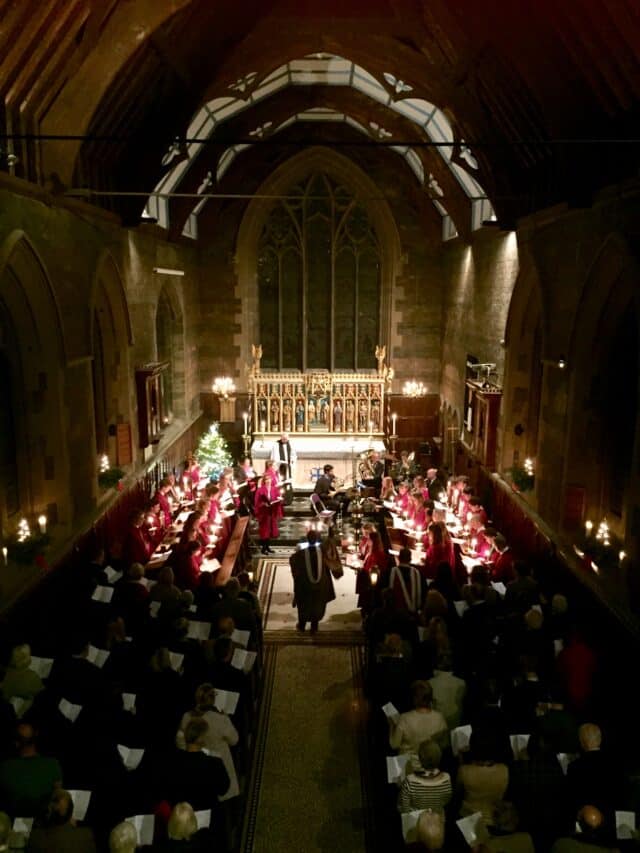
The 1954 service was held twice, once for the school and another held later for visitors, and the following year it was moved to the Parish Church to allow everyone to attend who wished to – even then, space was at a premium! The Chaplain at the time, conceded that ‘Many would have preferred this service in our own chapel with its particularly warm and friendly atmosphere, but there was certainly great gain, as well as some loss in this new arrangement.’ A look at the carols sung by the choir at that 1955 service reveals some familiar favourites – In Dulci Jubilo and Ding Dong Merrily on High as well as others, victims of changing musical fashions, which are less often heard today, such as Edmund Rubbra’s Dormi Jesu. Throughout the 1950s there was an increasing effort to go back to some ancient carols – Adam lay ybounden and Balulalow, for example – in settings by modern composers such as Peter Warlock and Benjamin Britten. The 1965 service featured a carol, Burst forth, my heart written by a pupil, John Overton (Cr 61-66), who could not be present as he was sitting his entrance examination for New College, Oxford (he was successful). This was his second carol to be performed at the Carol Service – the previous year’s The Saviour’s Work was judged by the Bloxhamist to be ‘a most moving and beautiful setting, and is remarkable for a boy of his years.’
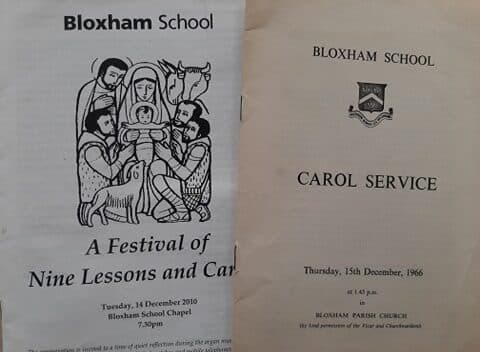
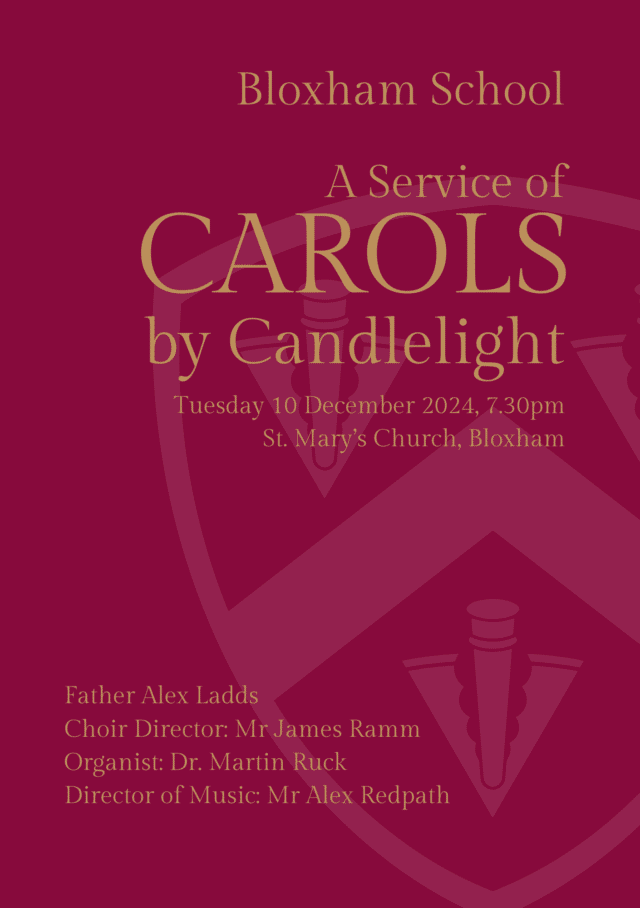
By this stage the Carol Service had moved to the last day of term, introducing the added element of pupils counting down the minutes to the end of term and worrying whether a longer than usual carol would mean them missing their train from Banbury. While the choir carols changed regularly, the congregational ones did not and have not, with Once in Royal David’s City early in the service and Hark the Herald Angels later and O Come All Ye Faithful at the end following the final lesson, John’s mystical In the beginning was the Word, intoned by the Headmaster.
The arrival of a new Chaplain, Donald Dowie (Staff 64-69), heralded a major innovation in the shape of an Advent Carol Service, held at the end of November 1964, in addition to the customary Carol Service at the end of term. It is not always appreciated that many of what we think of as Christmas Carols are actually more appropriate to Advent, such as O Come, O Come, Emmanuel and The Angel Gabriel Came Down, which look forward to the birth of the Christ child rather than celebrating his arrival. The School would continue for the next twenty years with this pattern of two carol services, one for Advent, usually held in Chapel in a blaze of candlelight, and the other for Christmas, always held in the Parish Church.
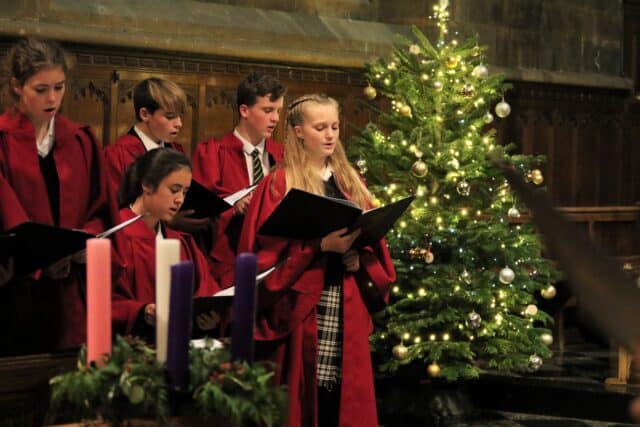
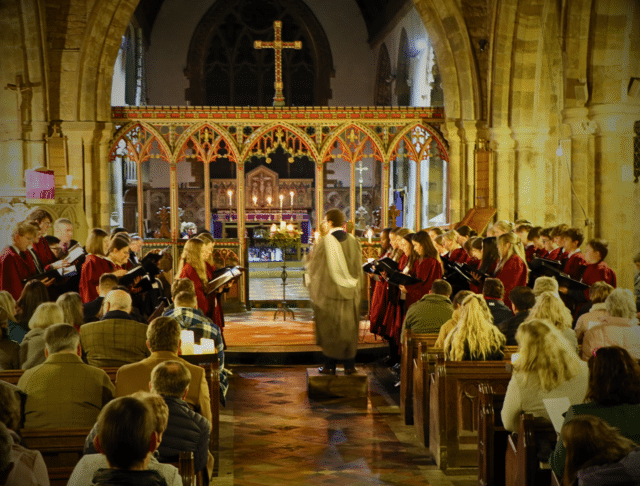
The latest innovation, other than a separate Carol Service for the pupils and parents of the new Lower School (now Exham House), was the introduction in 2014 of a candlelit service; Carols by Candlelight, held in the penultimate week of term, now rivals the traditional Carol Service as a musical and spiritual event, and in 2022 the decision was taken to move it to St Mary’s, Bloxham. Between them the two services provide something for everyone at this festive time of the year, not to mention a challenge for the choir, as choirmaster James Ramm (Staff 16-24), whose last term at the school this is, would never be caught allowing them the same carols to learn for both events.


